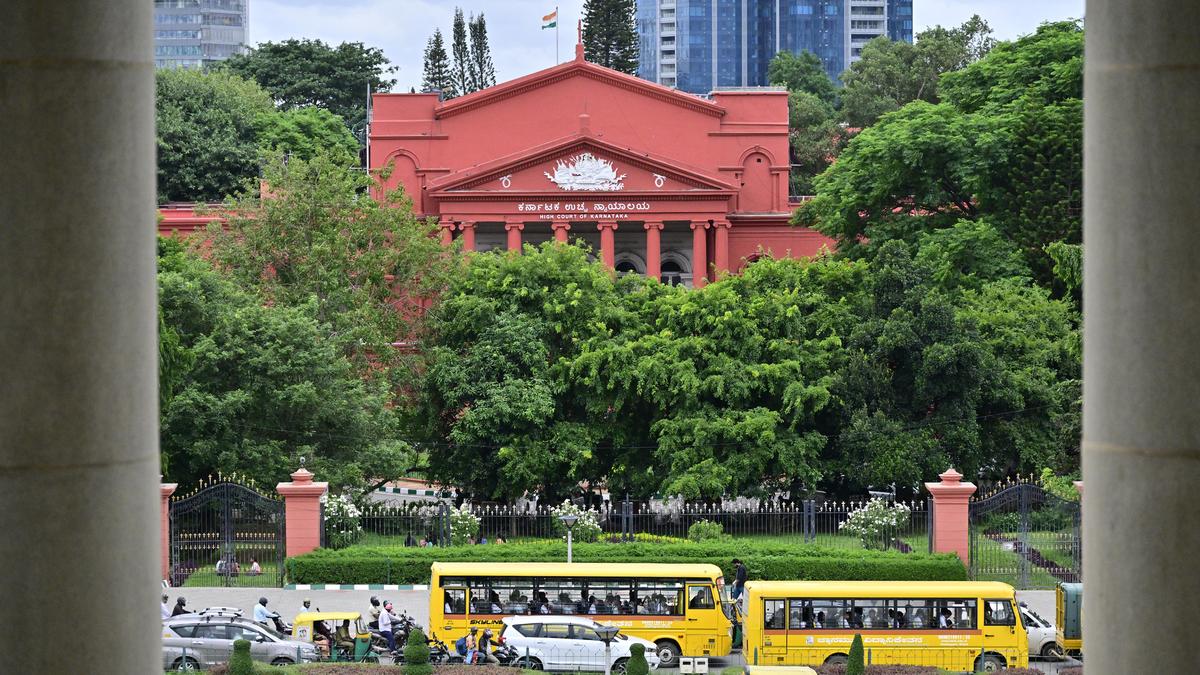A vew of the Karnataka High Court.
| Photo Credit: K. MURALI KUMAR
Observing that an inquiry officer with the Lokayukta had committed a glaring error in finding an engineer guilty of not acting against illegal construction, even though there was “no material to prove the guilt”, the High Court of Karnataka has set aside the penalty imposed on the engineer based on recommendation in the enquiry report.
The court also held that both the disciplinary authority in the Public Works Department (PWD) and the Karnataka State Administrative Tribunal “failed to take note of the glaring illegality vitiating the enquiry report even though the same has been specifically highlighted by the aggrieved engineer.”
A Division Bench, comprising Justice Anu Sivaraman and Justice Anant Ramanath Hegde, passed the order while allowing a petition by K.B. Narasimhamurthy, Assistant Executive Engineer with the Bruhat Bengaluru Mahanagara Palika (BBMP).
Inquiry conducted
The inquiry by an officer of the Lokayukta was conducted on a complaint filed in December 2006 with the BBMP Commissioner and with the Lokayukta in April 2007, alleging that a person had constructed a building in Binnypete sub-division by encroaching upon government land and contrary to a sanctioned building plan.
The PWD, after receiving a report probe from the Lokayukta, had authorised the Lokayukta to hold the disciplinary inquiry against six officers of the BBMP, who were deputed from the PWD, under provisions of the Karnataka Civil Services (Classification, Control and Appeal) Rules, 1957. The inquiry officer submitted a report in 2017 holding all the officers were guilty of not taking action against the illegal construction.
Acting on the inquiry report, the Bench noted the disciplinary authority of the PWD had imposed the penalty of withholding three increments without cumulative effect from the salary of the petitioner. As the tribunal in 2022 rejected the petitioner’s plea against imposition of the penalty, he had knocked on the court’s doors.
Service period
The Bench, from the records, noted that the inquiry officer, the disciplinary authority, and the tribunal ignored the fact that the petitioner served in the sub-division as an Assistant Engineer only between March 20, 2006, and September 22, 2006.
Referring to the Lokayukta’s investigation report of 2007, which stated that the illegal building was constructed about five to six years prior to the date of complaint, the petitioner had explained to all the authorities that he was neither serving in the sub-division when the illegal construction took place nor when the complaint was lodged, to hold him responsible for dereliction of duty.
Holding that there was ‘no evidence’ before the Lokayukta’s inquiry officer against the petitioners, the Bench directed the authorities to restore the increments within three months.






